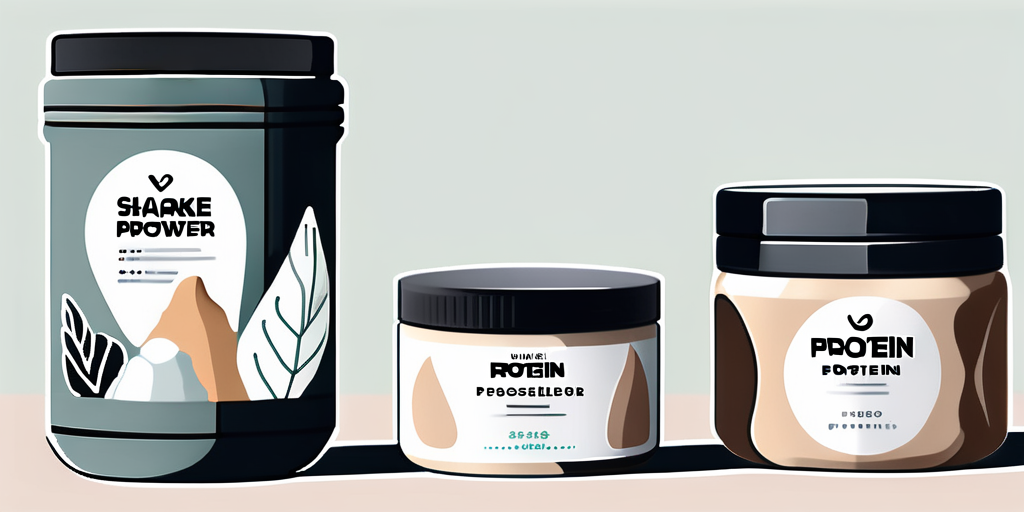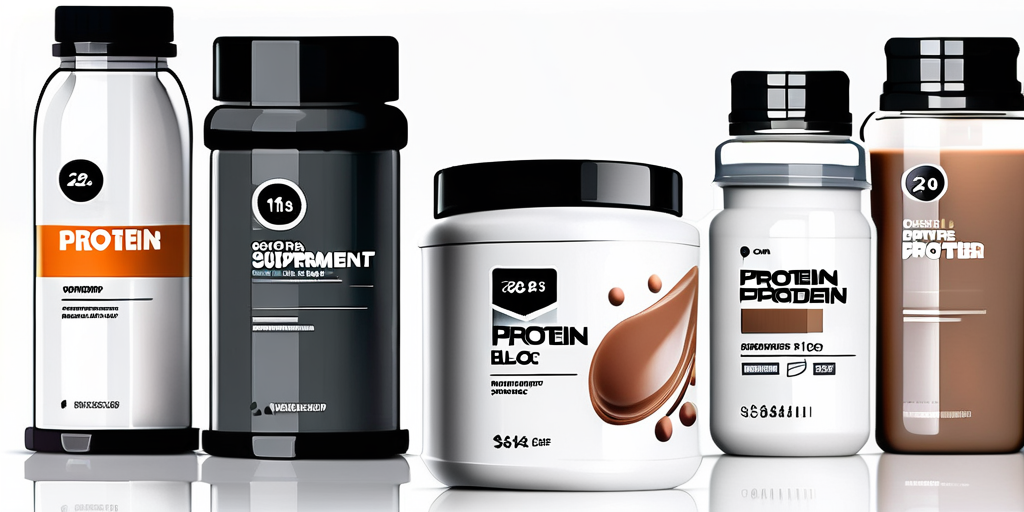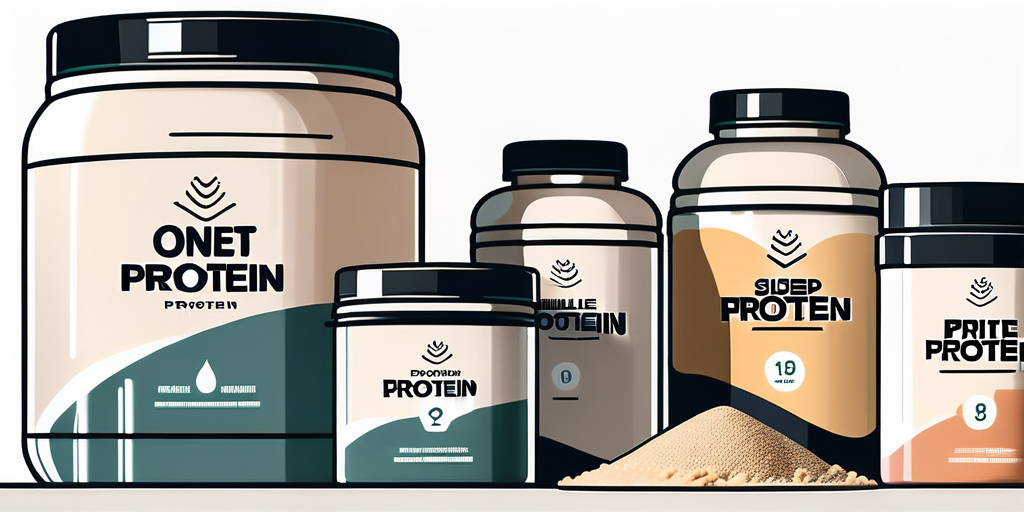In recent years, protein supplements have gained significant popularity among women looking to support their health and fitness goals. With countless options available in the market, it can be overwhelming to choose the perfect protein supplement that suits your needs. In this comprehensive guide, we will delve into the importance of protein for women, explore the different types of protein supplements, discuss factors to consider when choosing a supplement, provide tips on incorporating protein supplements into your diet, and highlight potential side effects to be aware of. So let's dive in and discover the ultimate guide to women's best protein!
Understanding the Importance of Protein for Women
Protein plays a vital role in women's health. It serves as the building blocks for cells, enzymes, and hormones, helping to repair and maintain the body's tissues. Protein is particularly crucial for women as it supports muscle growth and recovery, aids in weight management, boosts metabolism, and promotes overall wellness.
The Role of Protein in Women's Health
Protein is responsible for various functions that contribute to the overall well-being of women. It helps to maintain healthy hair, skin, and nails and supports the production of important molecules like collagen. Collagen, a protein found abundantly in the body, provides structural support to the skin, keeping it firm and elastic. It also plays a significant role in wound healing, helping to repair damaged tissues and promote faster recovery.
Furthermore, protein plays a crucial role in the immune system, helping to fight off infections and repair damaged tissues. It supports the production of antibodies, which are essential for a strong immune response. Adequate protein intake is necessary to ensure the body has enough resources to combat pathogens and maintain a healthy immune system.
Why Women's Protein Needs Differ from Men's
Women have unique protein needs compared to men due to differences in body composition, hormonal fluctuations, and physiological factors. While men typically have higher muscle mass, women require an adequate protein intake to maintain and build lean muscle mass. Protein is essential for muscle repair and growth, especially after intense physical activity or strength training.
Additionally, hormonal fluctuations throughout a woman's menstrual cycle can affect protein metabolism. During the luteal phase, which occurs after ovulation, progesterone levels rise, increasing protein breakdown. Therefore, it is crucial for women to ensure they have sufficient protein intake during this phase to support muscle maintenance and recovery.
Moreover, women often experience physiological changes during pregnancy and breastfeeding, which increase their protein requirements. Protein is necessary for the growth and development of the fetus and the production of breast milk. Pregnant and breastfeeding women need to consume extra protein to support the needs of both themselves and their growing baby.
The recommended daily protein intake for women varies depending on factors such as age, activity level, and overall health. Generally, it is recommended that women consume around 0.8 grams of protein per kilogram of body weight. However, athletes and individuals engaging in intense physical activity may require higher protein intake to support their performance and recovery.
Different Types of Protein Supplements
Protein supplements come in various forms, each with its own set of benefits and considerations. Understanding the different types can help you make an informed choice when selecting a protein supplement.

When it comes to protein supplements, there is a wide range of options available to cater to different dietary preferences and fitness goals. Let's explore some of the most popular types in more detail.
Whey Protein and Its Benefits
Whey protein is one of the most popular protein supplements among women. It is derived from milk and is highly bioavailable, meaning it is easily absorbed and utilized by the body. This makes it an excellent choice for those looking for quick and efficient muscle recovery and growth.
Not only is whey protein rich in essential amino acids, but it also contains a high concentration of leucine. Leucine is a branched-chain amino acid that plays a crucial role in muscle protein synthesis, making it essential for muscle repair and growth. By consuming whey protein after a workout, you can provide your muscles with the necessary building blocks to recover and become stronger.
In addition to its muscle-building benefits, whey protein is also known to support immune function and promote satiety, making it a great option for those looking to manage their weight or boost their overall health.
Plant-Based Proteins: A Great Alternative
For women following a vegetarian or vegan lifestyle, plant-based protein supplements offer a fantastic alternative. These proteins are typically sourced from plants such as peas, rice, soy, or hemp.
Plant-based proteins provide essential amino acids, making them a complete protein source. They are also easily digestible, which means your body can efficiently absorb and utilize the protein. This is particularly important for muscle recovery and growth.
One of the significant advantages of plant-based proteins is that they are hypoallergenic. This means they are suitable for individuals with dairy or other food allergies, offering a safe and nutritious option for those with dietary restrictions.
Moreover, plant-based proteins often come with additional health benefits. For example, pea protein is rich in iron, making it an excellent choice for individuals with iron deficiency or those looking to support their energy levels. Soy protein, on the other hand, contains phytoestrogens, which may help alleviate menopausal symptoms in women.
Casein Protein: Slow and Steady Release
Casein protein is derived from milk and is known for its slow digestion and absorption rate. Unlike whey protein, which is rapidly absorbed, casein protein forms a gel-like substance in the stomach, leading to a slow release of amino acids into the bloodstream.
This slow and steady release of amino acids makes casein protein an ideal choice for those looking for sustained muscle recovery and growth. By consuming casein protein before bed, you can provide your muscles with a constant supply of amino acids throughout the night, supporting overnight muscle repair and preventing muscle breakdown.
Additionally, casein protein has been shown to promote feelings of fullness and satiety, making it a valuable tool for weight management and appetite control.
With the variety of protein supplements available, it's essential to consider your individual needs, preferences, and goals when selecting the right one for you. Whether you opt for whey protein, plant-based proteins, or casein protein, incorporating a protein supplement into your routine can help support your fitness journey and overall well-being.
Factors to Consider When Choosing a Protein Supplement
When selecting a protein supplement, it's important to consider several factors to ensure it aligns with your specific needs and preferences.

Protein supplements have gained popularity in recent years due to their convenience and ability to support various health and fitness goals. Whether you're an athlete, a fitness enthusiast, or simply looking to improve your overall nutrition, finding the right protein supplement can make a significant difference in your results.
Dietary Restrictions and Allergies
If you have any dietary restrictions or allergies, it's crucial to choose a protein supplement that fits within your dietary preferences. For individuals with lactose intolerance or dairy allergies, plant-based proteins or lactose-free whey protein options are available.
Plant-based protein supplements, such as those derived from peas, hemp, or brown rice, are excellent alternatives for vegans or individuals who prefer to avoid animal products. These plant-based options not only provide a complete amino acid profile but also offer additional nutritional benefits, such as fiber and antioxidants.
Fitness Goals and Protein Intake
Your fitness goals and protein requirements should be taken into account when choosing a protein supplement. If you're aiming for muscle gain, a whey protein isolate or a blend with a higher protein content may be suitable.
Whey protein is a popular choice among athletes and bodybuilders due to its high biological value and rapid absorption. It contains all the essential amino acids needed for muscle repair and growth. Whey protein isolate, in particular, undergoes additional processing to remove most of the lactose and fat, making it a leaner option.
On the other hand, if weight management is your goal, a protein supplement with added fibers or appetite suppressants may be beneficial. These supplements can help you feel fuller for longer, reducing the likelihood of overeating and aiding in weight loss or maintenance.
Taste and Mixability
Taste and mixability are essential factors to consider, as they can impact your overall enjoyment and compliance. Try different flavors and brands to find the one that suits your taste preferences.
Protein supplements come in a wide range of flavors, including chocolate, vanilla, strawberry, and even more unique options like cookies and cream or salted caramel. Experimenting with different flavors can help you find the one that makes your taste buds sing.
Additionally, look for protein supplements that mix well with water, milk, or your preferred choice of liquid for convenient consumption. Some protein powders tend to clump or leave a gritty texture, which can be off-putting. Opting for a brand with good mixability ensures a smooth and enjoyable drinking experience.
Remember, choosing the right protein supplement is a personal decision that depends on your individual needs and preferences. By considering factors such as dietary restrictions, fitness goals, and taste preferences, you can find a protein supplement that not only supports your health and fitness journey but also brings you satisfaction and delight.
How to Incorporate Protein Supplements into Your Diet
Integrating protein supplements into your diet is a simple and effective way to increase your protein intake. Not only does protein play a crucial role in building and repairing tissues, but it also helps to support a healthy immune system and aids in the production of enzymes and hormones. Here are some tips to help you make the most out of your protein supplementation.

When it comes to protein supplements, there are various options available, including whey protein, casein protein, soy protein, and plant-based protein powders. Each type of protein offers its own unique benefits, so it's important to choose one that aligns with your dietary preferences and goals.
Best Times to Take Your Protein
Consuming protein around workout sessions is crucial for optimal muscle recovery and growth. When you exercise, your muscles undergo stress and micro-tears, and protein helps to repair and rebuild these damaged tissues. Aim to consume a protein shake or snack containing protein within an hour of completing your workout. This post-workout window is known as the "anabolic window," where your body is primed to absorb nutrients and utilize them for muscle repair and growth.
In addition to post-workout, it's also beneficial to spread your protein intake throughout the day. Having a protein-rich breakfast can help kickstart your day and provide sustained energy levels. By including protein in your morning meal, you'll feel fuller for longer and be less likely to reach for unhealthy snacks later in the day.
Another opportune time to consume protein is before bed. Casein protein, a slow-digesting protein, is particularly beneficial in this regard. By consuming a casein protein shake or snack before bed, you provide your body with a steady supply of amino acids throughout the night, promoting muscle recovery and preventing muscle breakdown.
Delicious Protein Shake Recipes
Get creative by incorporating protein into various delicious shakes and smoothies. Protein shakes are not only convenient but also offer a quick and easy way to increase your protein intake. Combine your favorite fruits, nut butter, milk or alternative milk, and a scoop of protein powder to create a nutritious and tasty protein shake.
For a refreshing post-workout shake, try blending together frozen berries, a banana, almond milk, and a scoop of vanilla whey protein powder. The berries provide antioxidants and natural sweetness, while the banana adds creaminess and potassium. The almond milk adds a subtle nutty flavor and is a great dairy-free alternative.
If you're a fan of chocolate, try making a chocolate peanut butter protein shake. Blend together a frozen banana, chocolate protein powder, a spoonful of peanut butter, and your choice of milk. This combination not only satisfies your chocolate cravings but also provides a good balance of carbohydrates, protein, and healthy fats.
Experiment with different flavor combinations to find your go-to recipe. You can also add additional ingredients like spinach, kale, chia seeds, or oats to boost the nutritional value of your protein shake. The possibilities are endless!
Potential Side Effects of Protein Supplements
While protein supplements offer numerous benefits, it's important to be aware of potential side effects that may arise from improper usage or excessive intake.
Overconsumption and Its Risks
Consuming excessive amounts of protein can strain the kidneys and liver, leading to potential health complications. It is essential to follow the recommended daily protein intake and consult with a healthcare professional or registered dietitian to determine the appropriate dosage based on your individual needs.
How to Avoid Unwanted Side Effects
To minimize the risk of unwanted side effects, it's crucial to choose a high-quality protein supplement from a reputable brand. Additionally, ensure that you are obtaining a balanced diet that includes a variety of whole foods alongside protein supplementation.
In conclusion, selecting the perfect protein supplement for women requires careful consideration of factors such as protein type, dietary restrictions, fitness goals, taste, and potential side effects. With this ultimate guide, you now have the knowledge to make an informed decision and embark on your journey towards better health and fitness. Remember to consult with a healthcare professional before making any significant dietary changes and listen to your body's unique needs. Embrace the power of protein and enjoy the benefits it brings to your well-being!



